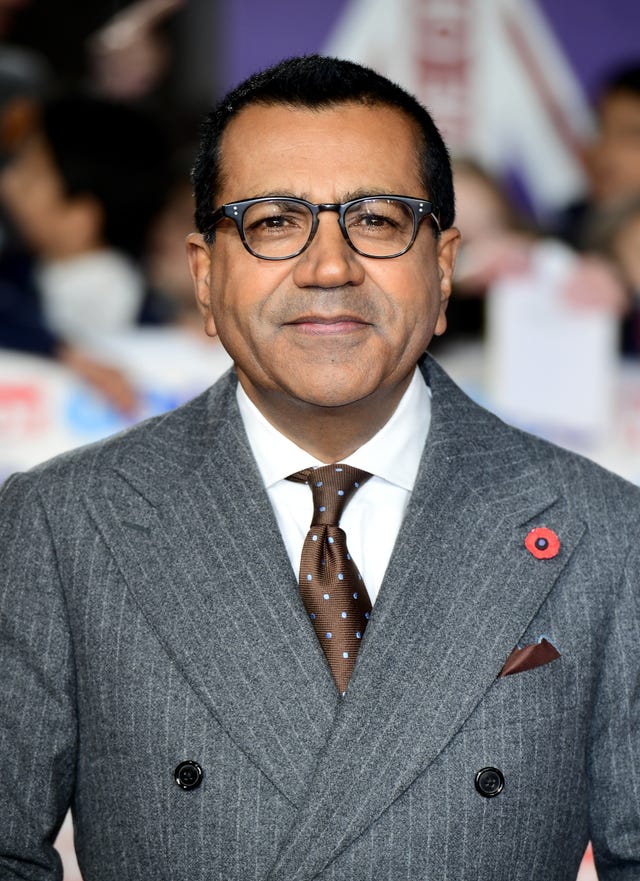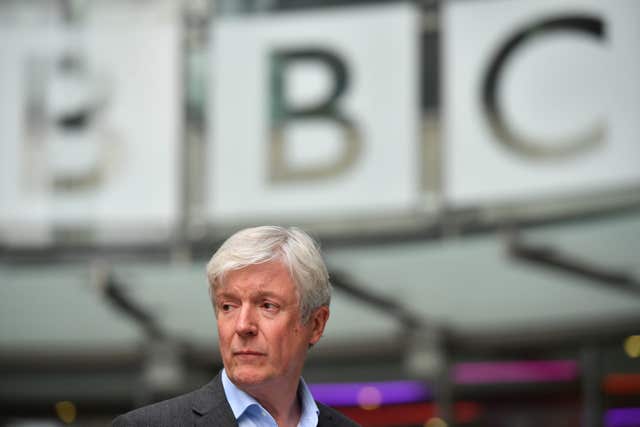
The BBC is facing “serious questions” following the publication of Lord Dyson’s blistering report into the circumstances surrounding Diana, Princess of Wales’ 1995 Panorama interview.
Ministers may look into whether there are governance issues that need reviewing outside of the remit of Lord Dyson’s inquiry, which found the corporation covered up “deceitful behaviour” used by journalist Martin Bashir to secure the explosive interview.
Lord Hall, who led an internal investigation into the interview in 1996, is also facing questions over why Bashir was rehired by the BBC in 2016.
 Martin Bashir (Ian West/PA)
Martin Bashir (Ian West/PA)
The Duke of Cambridge on Friday made his first public appearance since both he and his brother, the Duke of Sussex, issued scathing statements regarding the report.
William condemned the BBC in a statement saying the interview had fuelled his mother’s “fear, paranoia and isolation” in the final years of her life and damaged her relationship with the Prince of Wales.
Harry also hit out at the corporation, saying: “The ripple effect of a culture of exploitation and unethical practices ultimately took her life.”
During a visit to Portsmouth on Friday, Prime Minister Boris Johnson said he was “obviously concerned” by the inquiry’s findings”, adding: “I can only imagine the feelings of the royal family and I hope very much that the BBC will be taking every possible step to make sure nothing like this ever happens again.”
Current BBC director-general Tim Davie wrote to staff on Friday, saying lessons must be learnt and people across the BBC felt “deeply let down” by the contents of the 127-page document.
The Daily Mail reported that Diana’s brother Earl Spencer had urged Scotland Yard to investigate the BBC and initially wrote to Metropolitan Police Commissioner Dame Cressida Dick in January.
The Metropolitan Police said in March it was “not appropriate” to begin a criminal investigation into allegations of unlawful activity, but has now said it is “assessing” the contents of Lord Dyson’s report in case it contains new evidence.
READ MORE: Princess Diana Panorama interview: Met to examine report on Martin Bashir's 'deceitful behaviour'
Former director of BBC News James Harding, who held the post when Bashir was rehired to the broadcaster in 2016, apologised on Friday and said responsibility for Bashir returning to the corporation “sits with me”.
Speaking to BBC News, he also sidestepped questions on whether former director-general Lord Hall had any role in the process.
In 2016, Bashir was rehired as the BBC’s religious affairs correspondent, before becoming religion editor.
Digital, Culture, Media and Sport Committee chairman Julian Knight said he was writing to Davie, who took up the role last year, to inquire why Bashir had been allowed to return.
 Former BBC director-general Lord Hall (Ben Stansall/PA)
Former BBC director-general Lord Hall (Ben Stansall/PA)
He said: “In the wake of the Dyson report there are serious questions still left to answer. Namely, why was Martin Bashir rehired, with the BBC knowing what they knew? I am writing to the BBC’s director-general Tim Davie for urgent answers.
“I want to know how the BBC can reassure the committee that there could be no repeat of the serious failings that have been highlighted by the Dyson report. Now more than ever the BBC must show transparency and honesty in its response. We, the committee, will be discussing these issues when we meet in a private session.”
On Friday, former BBC executive Tim Suter, who was part of the 1996 internal investigation, stepped down from his current board role with media watchdog Ofcom in the wake of the report.
READ MORE: Princess Diana Panorama interview: Report to conclude Martin Bashir used deceitful methods
Mr Suter had previously been managing editor of weekly programmes in BBC News and current affairs.
Dame Melanie Dawes, Ofcom’s chief executive, said: “By mutual agreement, Tim Suter, Ofcom board member and chair of Ofcom’s content board, is stepping down with immediate effect. We would like to thank Tim for his contribution to Ofcom.”
She also confirmed the watchdog would be entering discussions with the BBC “to ensure that this situation can never be repeated”.



Why are you making commenting on The Herald only available to subscribers?
It should have been a safe space for informed debate, somewhere for readers to discuss issues around the biggest stories of the day, but all too often the below the line comments on most websites have become bogged down by off-topic discussions and abuse.
heraldscotland.com is tackling this problem by allowing only subscribers to comment.
We are doing this to improve the experience for our loyal readers and we believe it will reduce the ability of trolls and troublemakers, who occasionally find their way onto our site, to abuse our journalists and readers. We also hope it will help the comments section fulfil its promise as a part of Scotland's conversation with itself.
We are lucky at The Herald. We are read by an informed, educated readership who can add their knowledge and insights to our stories.
That is invaluable.
We are making the subscriber-only change to support our valued readers, who tell us they don't want the site cluttered up with irrelevant comments, untruths and abuse.
In the past, the journalist’s job was to collect and distribute information to the audience. Technology means that readers can shape a discussion. We look forward to hearing from you on heraldscotland.com
Comments & Moderation
Readers’ comments: You are personally liable for the content of any comments you upload to this website, so please act responsibly. We do not pre-moderate or monitor readers’ comments appearing on our websites, but we do post-moderate in response to complaints we receive or otherwise when a potential problem comes to our attention. You can make a complaint by using the ‘report this post’ link . We may then apply our discretion under the user terms to amend or delete comments.
Post moderation is undertaken full-time 9am-6pm on weekdays, and on a part-time basis outwith those hours.
Read the rules here